H.A. Byrd's Blog, page 3
January 3, 2021
Goodreads Error
My current post is Those Strange Things That Happen.
This older post is a tribute to my mother:
Mum
Our mothers are a part of us. Like it or not, we carry much of who they are inside ourselves. But we are also a part of them. A piece of me that lived within my mother Barbara was lost when she left this world last week.
My pain comes not from losing a happy or kind mother, but from saying goodbye to my beautiful, proud, and hurting mother. There is no healing for the knots of string which will never be untwisted. The fragments of her and my relationship are now carved in stone. Iʼm thankful, though, that we parted with love in our hearts, a love which has always been.
Mum was fond of mustard and liverwurst, and cashew chicken. Also thin mints, mint chip ice cream, and grasshopper pie. She had quite a sweet tooth actually, but she was smart about nutrition and ever since starting her family in the 1950s she made an effort to serve us healthy food.
My mother enjoyed the symphony, the opera, and theater. She knew something of the history of visual art. She painted a forest scene on the dining room wall of our home. Beautiful and tasteful, it matched the chandelier with tole metal flowers and leaves that hung above the oak dining table she and Daddy had refinished. In the early 1960s she created elegant pottery in her ceramics class. Once when she found herself without a babysitter, Mum brought her three young girls to the studio. She taught us to make snails by rolling a coil of clay and then curling most of it up to form a spiral for the shell. The vase she built that evening, with our lumpy little snails encircling the bottom, sat by the fireplace for fifty or more years.
The ocean. My mother loved to be near it, but not on or in it. She found happiness among tidepools, poking at tiny crabs, pocketing interesting pebbles, and experiencing the sound of the waves. The Oregon coast was dear to her, as childhood memories of visiting the beach cabin of her “Auntie” Una.
The mountains called to Mum also, with their geology and breathtaking scenery. She and Daddy hiked and cross-country skied. She was a birdwatcher, and she knew the names of the shrubs and wildflowers. Fond of animals of all kinds, she passed that love on to her children and grandchildren.
With a conviction that there is more to this world than meets the eye, Mum had an interest in transformative systems of thought. She wanted to understand the mystery of existence. Her curiosity about other cultures and their history led her to travel. She went on several elderhostel trips and spent some time in Sweden.
My mother cherished her time with her grandsons when they were young. She loved her family and also the greater community of the world. She cared about the environment. She donated both time and money to assist organizations working towards progressive political and environmental causes. It was her great joy to be here with us long enough to cast her vote in the November election.
A self-directed woman, my mother was apparently undaunted by gender boundaries of her era. When I was eight and my sisters were entering adolescence, Mum went back to school to get her masters in behavioral psychology. Our garage was full of cages containing rats. Rats ran mazes on our dinner table and pressed levers in a Skinner box. It was okay because all our family liked the rats. Exhausted in the evenings, Mum had me read her textbooks to her. I couldnʼt understand a thing, but I could pronounce most of the words well enough that she could figure out what they were. Later we moved from California to Saskatoon, where she taught and did research at the university for a year.
When we all moved with my father to British Columbia, my mother was unhappy with the public schools there. She started the Fraser Valley Alternative School, enrolling the three of us daughters and a few other kids. The downstairs of our historic Victorian house was the campus. We kids developed critical thinking, learning community effort through a holistic educational program. Mum did a fantastic job with this school, which only ran for two years before we moved to the Seattle area. Iʼm thankful that throughout my life my parents encouraged me in all my artistic projects and in adventures big and small.
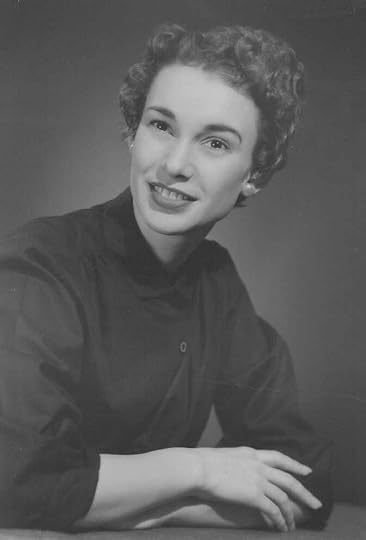
My mother had to cope with adversity in her life. She grew up during the Great Depression, the daughter of a principal and a schoolteacher. After college, she met and married my father, who was a good man (and handsome, to boot). Daddy, an electrical engineer, had a heart attack at thirty-five and was transferred to a job in a rural area. This had an enormous impact on the direction of both their lives. But more impactful than these sorts of setbacks, Mum had lost her little sister as a child, and later her own infant son. Both of these losses were devastating. Then, in 1982 my sister died at age twenty-four. Cristaʼs light meant so much to all our family that none could bear her passing.
Even with the heartbreak sustained by these losses my mother retained her sense of humor and her desire to leave this world a better place than she found it. I hope, wherever and however she exists now, she is able to see that she has done so.
November 14, 2020
Going out to clean the pasture spring

I'm going out to clean the pasture spring;
I'll only stop to rake the leaves away
(And wait to watch the water clear, I may):
I sha'n't be gone long.—You come too.
I'm going out to fetch the little calf
That's standing by the mother. It's so young,
It totters when she licks it with her tongue.
I sha'n't be gone long.—You come too.
In this Robert Frost poem, the narrator seems to be speaking to the object of his love, but who he truly addresses is the reader. We see that cleaning up debris, the residue of rebirth, is a natural task related to the human condition. We make way for the new season, we ready new life to thrive. The poem is an invitation to let go of old patterns and so allow new perceptions. This is an opportunity to grow, and perhaps to be healed.
On our journey through time, humanity has faced many crossroads. America stands at one of those junctions now, with most citizens reeling from exhaustion, and burdened with dismay at the condition of our collective soul. What a shock it has been to learn just how many whites still subscribe to the racism cultivated by ultra-wealthy plantation owners of the nineteenth century.
This has proved a time of self-examination for us all, a worldwide pause, an opportunity to look in the mirror. A pandemic has put a large percentage of us into isolation with plenty of time to take stock. History has reared its head as an important study, and most of us have engaged more with civics than we ever have before.
What better time to think about who we are, as individuals! Advanced age has made me more introspective. It seems to me that we can always discover new things about ourselves. And one interesting subject to consider is our personal influences. The character of even the most self-determined of us is the product of the minds of others.
Who in your life made an impression on you or guided you as a child? Did you have teachers who changed your life? Most of us have received direction from books weʼve read or stories weʼve heard. The Boy Who Cried Wolf taught us to tell the truth. Do you remember if that story scared you? What story did? Did you ever read a novel which made you feel like a different person after youʼd finished? Perhaps a movie, or even a song, has made a difference.
I think this is a great time to think about who we are, what we want out of life, and how we are going to get there.
Photo credit: unsplash.com/@sharon_coOctober 12, 2020
Stories Are Here For Us
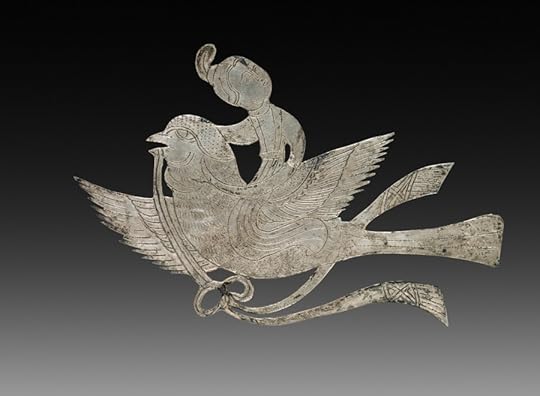
Many of us are exhausted, and ready for a breath of fresh air. I know I am. Relaxing with a book can be a source of comfort on several levels.
It is painful but fortunate that our eyes are opening to the reality of the society in which we live. The darker side of human nature has recently accelerated the onslaughts which are a natural result of that darkness. We respond with the light, the love, the brighter side of our humanity. We work together to save us from ourselves, just like in generation after generation of stories.
Our ancestors around the world lived through difficult, sometimes unspeakable events. They shared the wisdom gained from these experiences by telling stories. We have a wealth of knowledge in the form of mythologies, sacred texts and oral traditions. These stories can help us to improve our lives, giving us perspective or adjusting our thinking. They can help us to cope.
In modern thinking, the insect which rested conspicuously on a manʼs head for a couple of minutes during political debate did so as a random event. It could have happened to anyone. What are the chances, though, that a bird perched on a candidateʼs podium in a crowded venue, and also a fly rested for a couple of minutes on the head of another during a debate? Throughout the ages, small birds have represented clarity, purity of the soul, and new beginnings. Flies have been associated with refuse and corruption. There is a thin line between superstition and usefully noticing these symbols that nature gives us, but our traditional stories and sacred texts are full of them.
Symbols are integral to our lives, our brains recognize them and depend on them for processing information. Traditional knowledge within and across cultural boundaries, expressed through symbols since time out of mind, has woven societies rich with culture. Artful uses of archetypal images such as this bird and fly are a joy to come across in fiction and poetry. These symbols are significant because we use them to interpret what we observe in literature and in life.
Personally, Iʼve always had an interest in symbols. Symbolic images in dreams, in artwork and literature (particularly in traditional fantasy) intrigue me. Enthusiasm in recognizing symbols helps the reader to appreciate the story Aruʼs Realm both artistically and sociologically.
September 12, 2020
I Can���t Breathe
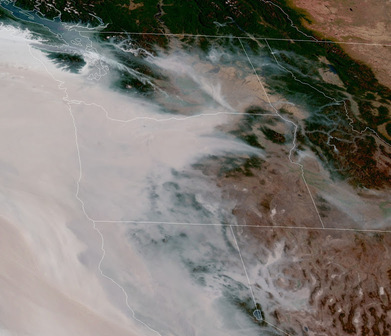
As I write this, my home in the Pacific Northwest is under an increasing air quality index rating due to wildfires. It is threatening to go from Unhealthy to the Very Unhealthy which has surrounded Seattle and is reaching northward. Some areas of my state are in the next level up, Hazardous status. There is no rating beyond Hazardous. Oregon and northern California are disasters and many people have been evacuated.
The words, ���I Can���t Breathe��� are recognized as a slogan associated with Black Lives Matter protesters. Eric Garner, George Floyd, and others���mostly people of color���are known to have repeatedly uttered this plea as they were suffocated by police officers. I respect that this statement is connected to the movement against systemic racism. At this time in history, the words belong primarily to this movement.
Keeping this in mind, I have something to say. I came down with the COVID-19 virus on March 1st, the day my novel Aru���s Realm was released. Like many other victims, my lungs were affected. I was only sick for two weeks, thankfully, but my lungs are healing agonizingly slowly. The smoky air has set me back. I can only imagine how the smoke is affecting those with worse damage. So many have suffered because of the virus. In addition, COVID-19, has affected us all through the need to wear masks. Wearing masks saves lives. It���s that simple. But wearing a mask can make a person feel smothered. COVID-19 has taken our breath away.
The planet is screaming, repeatedly, ���I can���t breathe!��� We talk about nature as if we are not a part of it. In reality, we are animals. We���ve evolved into amazing creatures and are capable of astounding things. Yet every genius development we make is merely nature exploring itself. When people cry in the street from oppression, this is an element of nature���s voice. COVID-19 is said to be just the beginning of an era of pandemics, the environment���s response to mistreatment. Climate change is key in the increase and extent of wildfire activity.
My family had planned to spend the day today somewhere the air was still clear. We looked forward to walking on the beach. But yesterday the forecast changed and we knew we���d be spending my husband���s birthday celebration sequestered indoors, not able to take the dog for a walk. We���ve been watching the air quality map, trying to make plans to get out and away somewhere. What���s upsetting isn���t the alteration of our plans. It���s that there���s no place to go.
I took a shower. The water cleaned off my body and eased my mind. A few minutes of comfortable breathing, it felt wonderful. So wonderful, in fact, that I forgot not to inhale while I was washing my face. Some water went down into my lung. I gasped for air. My throat swelled, closing the airway more and more as I watched my body apparently snuff out my life. I could not breathe. I could not breathe at all. This only lasted a matter of seconds, but it made a strong impression on me. I never want to experience that feeling again.
Our mother earth is struggling for breath. There���s no place to go. We���ll make it through this fire season, most of us. This covid pandemic, most of us. This presidency, hopefully. I���m optimistic that things will get better again. This is what the stories tell us, to take heart. History has had many times of bleakness which seemed insurmountable. There are amazing people out there, working to help. We have heroes. There are people like Greta Thunberg, Ruth Bader Ginsburg, Heather Cox Ruichardson, who are not afraid to stand up. With their efforts, and with luck and blessings, we���ll pull through.
But we can no longer sit back and wait for the heroes to fix things. Most of us have had plenty of time, here, with the COVID-19 restrictions, to take a look at ourselves and our situation. Also, many of us have learned much over these past few years that we simply were not aware of before. We���ve achieved a new perspective. It has not been long, historically speaking, since the Civil War. I, for one, am painfully aware of that now.
We have all known for some time that the environment needs us to change our behavior. The planet requires our help in order for the world as we know it to survive. Nature, certainly, will exist no matter what we do. There will always be rocks. If we want to continue on with apples and greenery and the human species, though, we need to pay attention.
Our lifestyles create gasses which are destroying the balance of life on the planet and threaten to kill us all. We can change these lifestyles and our methods of using the earth���s resources.
There is so much change needed that it is absolutely overwhelming. Like any other overwhelming thing, it is important to break it down into pieces, take things in steps. There are close to eight billion of us. Okay, yes, that���s one of our problems. But that is a lot of people who can work on solutions. None of us have to fix everything.
If you haven���t already, pick something. We all need to get to work.
September 11, 2020
I Canʼt Breathe
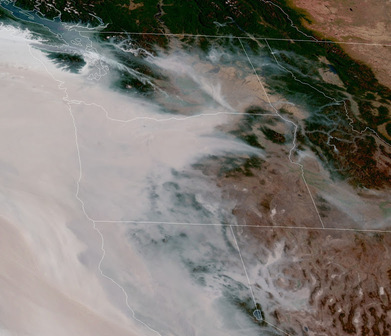
As I write this, my home in the Pacific Northwest is under an increasing air quality index rating due to wildfires. It is threatening to go from Unhealthy to the Very Unhealthy which has surrounded Seattle and is reaching northward. Some areas of my state are in the next level up, Hazardous status. There is no rating beyond Hazardous. Oregon and northern California are disasters and many people have been evacuated.
The words, “I Canʼt Breathe” are recognized as a slogan associated with Black Lives Matter protesters. Eric Garner, George Floyd, and others—mostly people of color—are known to have repeatedly uttered this plea as they were suffocated by police officers. I respect that this statement is connected to the movement against systemic racism. At this time in history, the words belong primarily to this movement.
Keeping this in mind, I have something to say. I came down with the COVID-19 virus on March 1st, the day my novel Aruʼs Realm was released. Like many other victims, my lungs were affected. I was only sick for two weeks, thankfully, but my lungs are healing agonizingly slowly. The smoky air has set me back. I can only imagine how the smoke is affecting those with worse damage. So many have suffered because of the virus. In addition, COVID-19, has affected us all through the need to wear masks. Wearing masks saves lives. Itʼs that simple. But wearing a mask can make a person feel smothered. COVID-19 has taken our breath away.
The planet is screaming, repeatedly, “I canʼt breathe!” We talk about nature as if we are not a part of it. In reality, we are animals. Weʼve evolved into amazing creatures and are capable of astounding things. Yet every genius development we make is merely nature exploring itself. When people cry in the street from oppression, this is an element of natureʼs voice. COVID-19 is said to be just the beginning of an era of pandemics, the environmentʼs response to mistreatment. Climate change is key in the increase and extent of wildfire activity.
My family had planned to spend the day today somewhere the air was still clear. We looked forward to walking on the beach. But yesterday the forecast changed and we knew weʼd be spending my husbandʼs birthday celebration sequestered indoors, not able to take the dog for a walk. Weʼve been watching the air quality map, trying to make plans to get out and away somewhere. Whatʼs upsetting isnʼt the alteration of our plans. Itʼs that thereʼs no place to go.
I took a shower. The water cleaned off my body and eased my mind. A few minutes of comfortable breathing, it felt wonderful. So wonderful, in fact, that I forgot not to inhale while I was washing my face. Some water went down into my lung. I gasped for air. My throat swelled, closing the airway more and more as I watched my body apparently snuff out my life. I could not breathe. I could not breathe at all. This only lasted a matter of seconds, but it made a strong impression on me. I never want to experience that feeling again.
Our mother earth is struggling for breath. Thereʼs no place to go. Weʼll make it through this fire season, most of us. This covid pandemic, most of us. This presidency, hopefully. Iʼm optimistic that things will get better again. This is what the stories tell us, to take heart. History has had many times of bleakness which seemed insurmountable. There are amazing people out there, working to help. We have heroes. There are people like Greta Thunberg, Ruth Bader Ginsburg, Heather Cox Ruichardson, who are not afraid to stand up. With their efforts, and with luck and blessings, weʼll pull through.
But we can no longer sit back and wait for the heroes to fix things. Most of us have had plenty of time, here, with the COVID-19 restrictions, to take a look at ourselves and our situation. Also, many of us have learned much over these past few years that we simply were not aware of before. Weʼve achieved a new perspective. It has not been long, historically speaking, since the Civil War. I, for one, am painfully aware of that now.
We have all known for some time that the environment needs us to change our behavior. The planet requires our help in order for the world as we know it to survive. Nature, certainly, will exist no matter what we do. There will always be rocks. If we want to continue on with apples and greenery and the human species, though, we need to pay attention.
Our lifestyles create gasses which are destroying the balance of life on the planet and threaten to kill us all. We can change these lifestyles and our methods of using the earthʼs resources.
There is so much change needed that it is absolutely overwhelming. Like any other overwhelming thing, it is important to break it down into pieces, take things in steps. There are close to eight billion of us. Okay, yes, thatʼs one of our problems. But that is a lot of people who can work on solutions. None of us have to fix everything.
If you havenʼt already, pick something. We all need to get to work.
September 2, 2020
Aru's Realm Pronunciation Guide
 Chapter OneAruAH-rooAuwuow-WOOVorffeVorffVisyrnVIZ-eernHauvaHOW-faMolliMOL-eePraahkPRAH-awkPlace namesYsgarladUSS-gar-LAD
Chapter OneAruAH-rooAuwuow-WOOVorffeVorffVisyrnVIZ-eernHauvaHOW-faMolliMOL-eePraahkPRAH-awkPlace namesYsgarladUSS-gar-LAD Chapter TwoLady AkawuAK-a-wooLwynnLOO-unMrs Bukbagokbuk-bagOCKPhfft-PsyfftPIFT-pissftNrouhwner-OWVuoibmiVoo-OIB-meeKgugglekuh-GUG-ulOlookaoh-LOOK-uhPlace��names (Houses��of)VulpedenVUL-pey-denRhedynRED-en
Chapter TwoLady AkawuAK-a-wooLwynnLOO-unMrs Bukbagokbuk-bagOCKPhfft-PsyfftPIFT-pissftNrouhwner-OWVuoibmiVoo-OIB-meeKgugglekuh-GUG-ulOlookaoh-LOOK-uhPlace��names (Houses��of)VulpedenVUL-pey-denRhedynRED-enChapter 2 spoiler
Most character names are onomatopoeia of animal calls.
Examples:
Aru. Mrs Bukbagok is a red hen. Nrouhw.
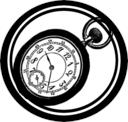 Chapter ThreeAldreiald-RAYAeonEE-onPlace namesLoessLOW-essAnseoawn-SUHOubliOO- bleeSylfaensill-FINEor in the old dialect: sull VINE
Chapter ThreeAldreiald-RAYAeonEE-onPlace namesLoessLOW-essAnseoawn-SUHOubliOO- bleeSylfaensill-FINEor in the old dialect: sull VINE Chapter FourArven Lekkchaos Chymynroddion BlackbuckAR-ven lek-KAY-oss xuh-meen-ROD-eeonKokcockAraniedaair-ah-nee-A-duhGrmhrelgrrm-HRELMuhg-WuffleMUG-wuffelPlace namesAeryhurstAIR-ee-hurstBowne Forestbown (rhymes with town)
Chapter FourArven Lekkchaos Chymynroddion BlackbuckAR-ven lek-KAY-oss xuh-meen-ROD-eeonKokcockAraniedaair-ah-nee-A-duhGrmhrelgrrm-HRELMuhg-WuffleMUG-wuffelPlace namesAeryhurstAIR-ee-hurstBowne Forestbown (rhymes with town) Chapter FiveThxsissTHX-sissMhehhMEH-heh-hehVridgetvrid-JITConuriKON-yoor-eePythmussPITH-mussAvariceoAV-ar-ISS-see-ohPlace namesTerasauterr-AHS-eye
Chapter FiveThxsissTHX-sissMhehhMEH-heh-hehVridgetvrid-JITConuriKON-yoor-eePythmussPITH-mussAvariceoAV-ar-ISS-see-ohPlace namesTerasauterr-AHS-eye Chapter Six
Chapter SixSpoiler: type of animal vocalizationType of animal vocalization: mountain goat����
Mr. VweheVWEH-hehMr. Mahahb MahahbehMAH-abb MAH-abb-beh Meheheh MehahME-he-he me-HAMynyddMUN-niddin the old dialect: MUH-neeth Defnyndaf-NEENin the old dialect: dav-NEENAnkh Iponk ippMhehhsee spoiler aboveMahabajnish Reetyirrtanamah-hah-baj-NEESH reet-yir-TAN-ah Emheheh (Stellar) and Mmhehh (Splendor)see spoiler aboveGirunGEAR-roonMehbsee spoiler aboveMbeheh and Memaahsee spoiler abovePlace names (see spoiler above)Bwahmaa, Mahahag, and Bwahmyr: peaks Bwe MahaahaMama Bwehmebʼs ConfectioneryLake Mwahma Chapter SevenSquee-ee Ahk Uh kʼkkkkSpoiler: type of animal vocalizationtype of animal vocalization: dolphin��Belchebelch
Chapter SevenSquee-ee Ahk Uh kʼkkkkSpoiler: type of animal vocalizationtype of animal vocalization: dolphin��Belchebelch Chapter EightMr. VariegatVAIR-ee-uh-gatWuuruewoo-ROOPlace namesAmryliwAM-ruh-leewLiwienLeew-ee-enErinaceu CityAir-in-sowErinaceus Collegeair-in-A-shusLliw Anhygoel Universitythleew an-huh-goyl
Chapter EightMr. VariegatVAIR-ee-uh-gatWuuruewoo-ROOPlace namesAmryliwAM-ruh-leewLiwienLeew-ee-enErinaceu CityAir-in-sowErinaceus Collegeair-in-A-shusLliw Anhygoel Universitythleew an-huh-goylSound creditsSquee — Felix BlumeNrouhw — AlexTriceratops123Aru — U.S. Fish and Wildlife ServiceMrs Bukbagok— pillonoiseMeheheh — beskhu
August 20, 2020
My Cat
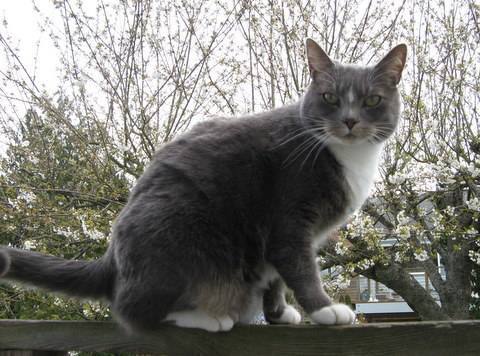
We lived, at the time, in a no-stoplights mountain town in northwest Montana. My husband and three sons spent a bright August day fishing. I stuck my head out the back door when they arrived home, “Did you catch anything?”
They approached the house, walking abreast, fishing poles in hand. “We caught a catfish!” One son dangled a kitten from his hand, gripping it around its little chest. Under the pretext of a fishing trip, theyʼd snuck over to Idaho to pick up my birthday present.
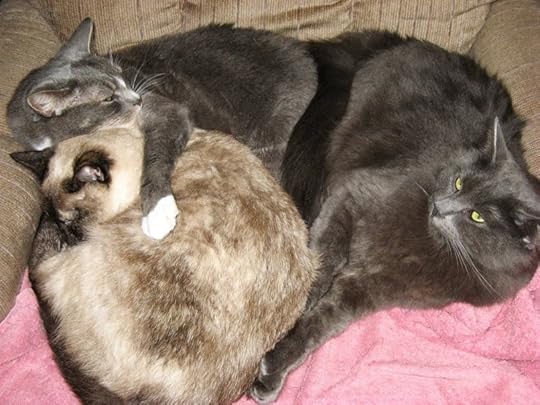
Sixteen years of age now, Catfish is a big boy. Grey mackerel in color, heʼs got a white bib and paws. One of those animals who seem like an elder since a young age, thereʼs something about his expressions, his choices.
Heʼs had a Facebook account since 2005; three years before I had one and with ten times the friends. Heʼs been on there since before all we nosey adults got onto Facebook and ruined it for the kids. It makes sense though, that he has a page, because this gentleman feline lives an interesting life.
Like many cats, heʼs had household adventures, like the time he got his fat self stuck upside-down behind the hot water heater and I had to rush home sixty miles to free him before he suffocated. Or when he and Tubbles went missing for two days, came home drenched in a rainstorm, and young Lucy (sister of Tubbles) beat them both up for making her worry.
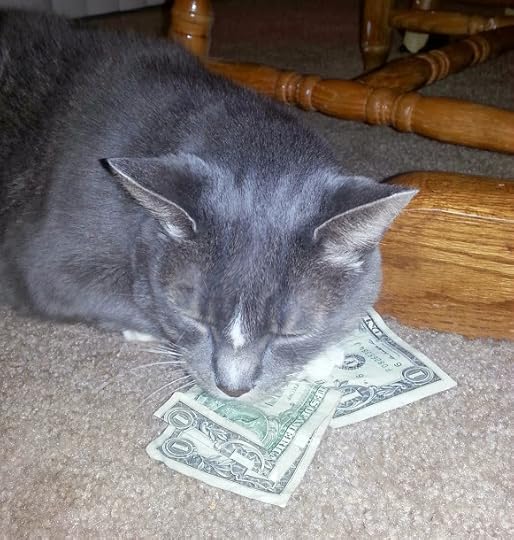
But our Catfish, while courteous and honorable, is also a rebel. He loves to chase deer, even after having been stomped by one. I suppose the danger adds to the adrenaline rush. Dragging socks around the house and calling out is not enough for him. Oh, no.
He steals the goods out of dresser drawers. Once he brought my underwear downstairs into the living room when we had company. I was just glad that he robbed my drawer and not the laundry basket. For a while, when my youngest was at home, Catfish would collect the dollar bills left lying around and make himself a nest under the dining room table.

Although we live on the Pacific Northwest Coast, the family is always ready for a travel adventure. All three cats have been across the US several times by minivan. An extended camping trip in New England showed them birds theyʼd never seen before, and strange-looking squirrels. This was followed by a year in Salem MA, and another in Providence, RI.
Catfish once rode for two months in an eighteen-wheeler. He loved it. Safely harnessed to stay clear of the driver area, he could nap on the bunk or sit in the other seat. The blind spot window in the passenger door near the floor was perfectly cat-sized, framing him as he observed the passing scenery. When traveling through towns, people waiting on the curb would squeal, “A cat! Look!” Catfish would smile and lick his treasured white paws in validation. Proud of his paws, he spends a lot of time cleaning them just-so.
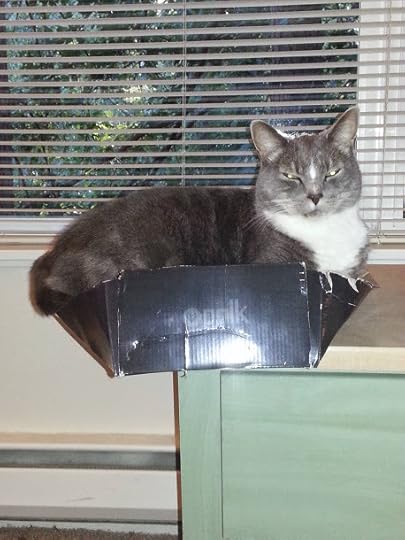
Whether heʼs baiting the dog, protecting his juniors from danger, or giving me the nightly nine-oʼclock “canned cat food” stare, this cat inspires a loving respect from all who know him. He hates diets, loves sunbeams, and will not put up with vacuum cleaners. In an uncanny way he seems to understand English. Nothing gets by this fellow.
Catfish, my Catfish. May you continue to charm us with your feline poise and special flair. Who doesnʼt love a gentleman rebel?
July 25, 2020
Living By The Sword
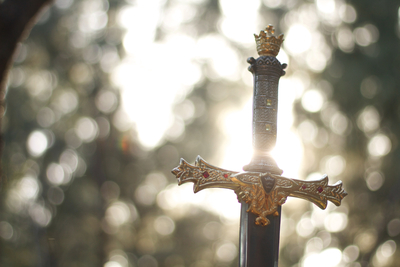
Through the centuries, King Arthur has been known as a man whose sword and kingdom were inseparable from his soul. Iʼve read many versions of the legend, because Iʼve always had the heart of a romantic. Tolkienʼs Aragorn attracted me so much as a child that he and his And��ril pretty much became a part of my own soul. So much romance is associated with the sword! Theyʼve been in use for millennia, and, worldwide, weʼve been romanticising war for millennia.
When we name a weapon, as we do a ship, we humanize it in some way—recognizing it as having a spirit. For much of history, both ships and swords have been profoundly important as means of achieving and keeping power. Therefore, we honor and respect the names. And there are countless swords of renown. History and mythology give us Charlemagneʼs Joyeuse, the Islamic Zulfiqar, and the Heaven's Will of L�� dynasty Vietnam. Sword names are often earned, building stories to hand down through the generations.
Many times, more than people, swords took center stage in the stories which were handed down. And yet, they were not the mainstays of battle. The clank of steel, the snorting of horses, these we expect in battle scenes. But in real life, over most of history, battles were fought by formations of men, and it was pole arms such as the pike that predominated. Any man could handle a pole arm, it didnʼt require skill. Swords were for the nobility, and this is why they persevere as symbols of glory.
Across the continents, swords are a symbol of war, destruction, protection. Divine authority. Valor. Justice. When a weapon is a symbol of justice, though, one really needs to question if that perspective might be a bit one-sided.
In some traditions the sword symbolizes purification, the cutting away of unhealthy thoughts, piercing the mystery of ourselves in order to gain the freedom of enlightenment. How does a sword slice away impure thoughts and ignorance? Why use the metaphor of a sword rather than, say, a kitchen knife to rid ourselves of distractions and unhelpful ideas? Well, swords are powerful. They are instruments of death. So I suppose the idea is that swords kill the adversaries: these unwanted thoughts.
Like most of us, I am a long way from enlightenment, but I see that when we do bring ourselves to inner peace we understand that there are no “bad guys.” These are only things that are out of place. In some indigenous traditions, all sickness is caused by something that is where it shouldnʼt be. The world doesnʼt have to be seen as good versus evil.
The fascination with battle is so deeply a part of us, I donʼt think itʼs really going anywhere. But we can be aware. We can choose what to focus on. Find a balance. Badass sword-brandishing goddesses have their place, and there is no story without conflict. But there are a zillion things that can go wrong in life; fantasy writers neednʼt always fall back on the easy theme of war for meaningful and engaging challenges.
When the power of love overcomes the love of power, the world will know peace. — Jimi Hendrix
July 17, 2020
Review of The Sculpted Ship
 I was not able to get through this SciFi book, but as I feel this may have more to do with my own state of mind at this time, I am not leaving this review on the book's page. I don't want to affect the author's ratings. I am interested in what others who have read it might have to say to me.
I was not able to get through this SciFi book, but as I feel this may have more to do with my own state of mind at this time, I am not leaving this review on the book's page. I don't want to affect the author's ratings. I am interested in what others who have read it might have to say to me. This story takes place in an arm of a galaxy somewhere in an area of space referred to as the Inner Rim. I listened to the audio book.
I like the old-fashioned quality of this novel, it starts out with a simple story-line, light and bright. Anailu, the protagonist, is taking a risk to follow her dream and finds herself supported by others along her way. Is this purely because they admire her spirit and her abilities?
The author certainly has a military background, possibly as an engineer or mechanic. In building the story, great detail is given to the nuts and bolts of the situation. Those who enjoy reading about re-calibration, certification, and business transaction will enjoy this book.
For me, there is too much American-feel capitalism to wade through. I want to be transported elsewhere. In the first few pages, when Anailu goes shopping for a spaceship, she could be doing it in Cleveland. This seems to be on purpose. But there are hints here and there that something is other than human about this woman. She has grey skin, and her name is foreign to others. And the ship itself has some mysteries to offer.
This review is only regarding the first part of the book. There are some interesting ideas in the Amazon blurb which intrigued me, but it turns out that much of that blurb is backstory. (I now see the Goodreads blurb, and it's much better, in my opinion.) I didn’t make it as far as the dangers mentioned in the the Amazon blurb. I got bogged down in the preparations and negotiations, and the humanness of things. Maybe I need to read further. I probably will in the future, and I’ll update this review. I get the impression there are interesting elements to come, I just can't get there at this time.
The Sculpted Ship
June 26, 2020
Insight Belongs To Us All
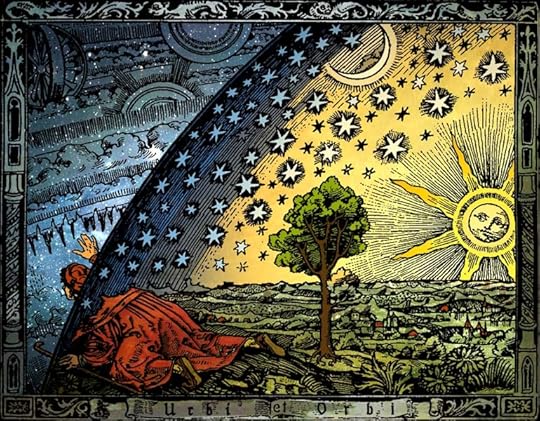
Procedures for outwitting a bully, without becoming one. How to find strength in order to endure a crisis. What it means to cultivate trust and courage. The fact that we are not alone. These concepts are learned and relearned throughout history, perennial reminders as we work together to evolve into a species more refined and compassionate.
Since the days of the first grunts we made as cave-dwellers, our shared arts have helped guide us through hard times. As a species we know how to cope with trials and strife. Weʼve learned this, over time. A deep wisdom connects us all, manifesting in music and artwork to mirror our society and inspire in us how to behave. Stories move us, invoking concern for others. Often they help us put our problems in perspective. Frodo has it a lot harder than most people, and as frightening as our world looks sometimes, I sure wouldnʼt want to be him.
Good fiction helps to internalize knowledge that we may know is true yet still havenʼt grasped in a meaningful way. Matters such as vengeance and jealousy have appropriate responses, but those arenʼt always easy to perform. In anxious times, finding hope can be a buggar. Reading gives us practise with these things, and helps us to experience and understand abstract ideas.
To read a story is, in a way, to cheat death. Each fiction lets us live an extra life for a certain amount of time. What an amazing ability to have.
And, of course, stories are fun. Thatʼs important. Offering a certain camaraderie, new experiences and challenging our perspectives, reading expands our imaginations. No matter what genre we choose, the artful positioning of words on the page creates a certain kind of magic. I think everyone can use some magic in their lives.
1888 Flammarion engraving. Colorized by Heikenwaelder Hugo



